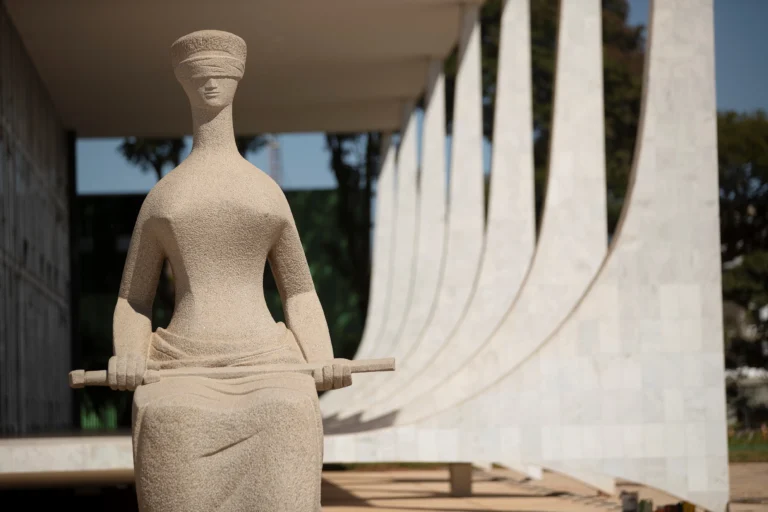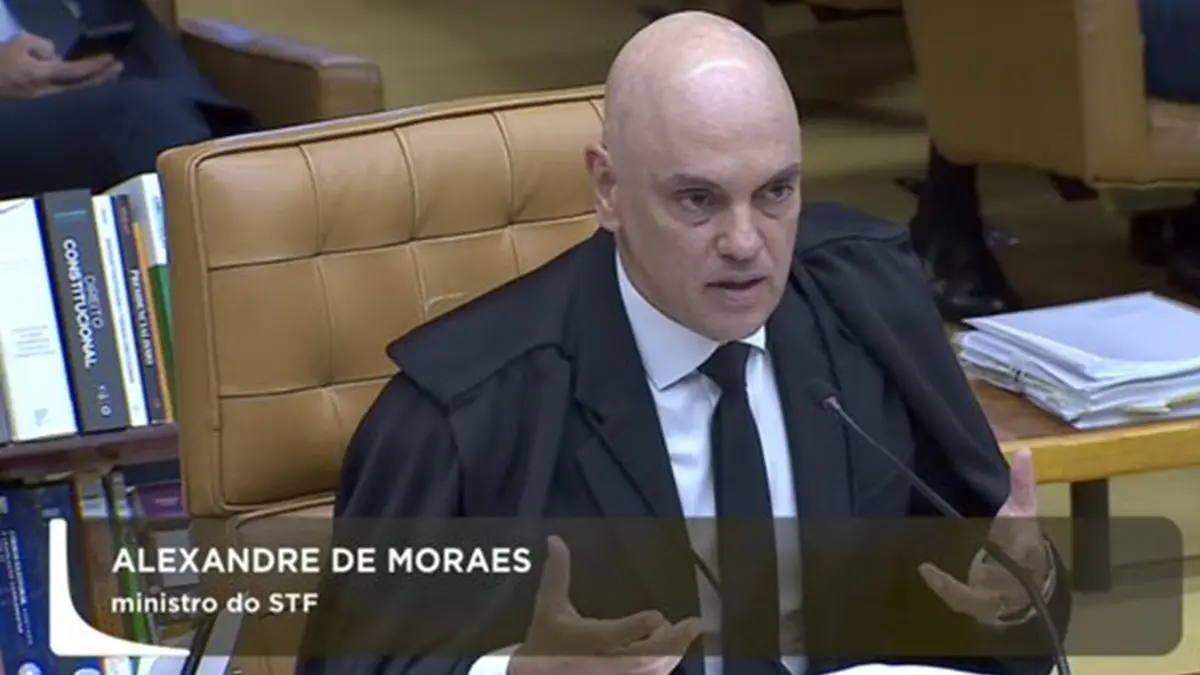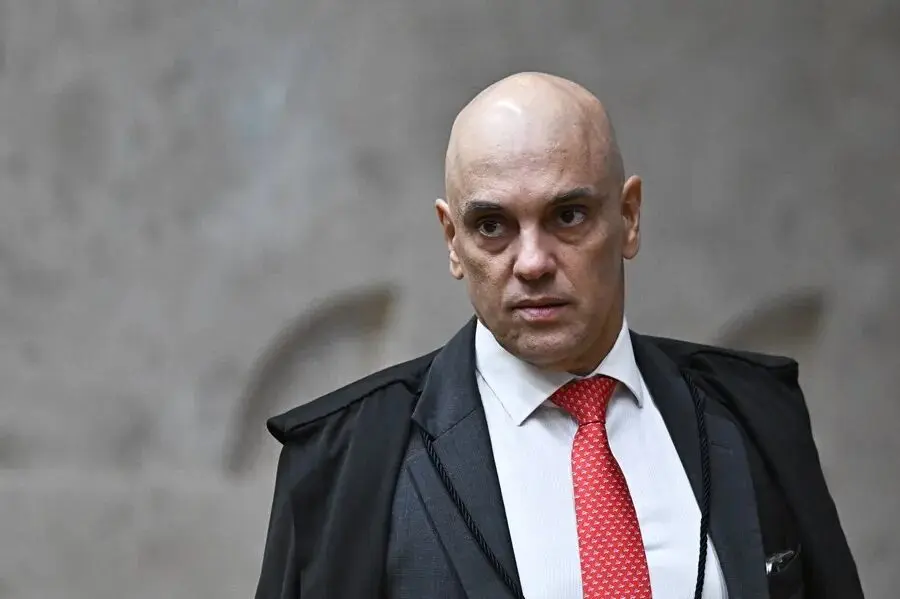Bolsonaro Before Justice: An Indispensable Democratic Milestone for Brazil

August 6, 2025 Hour: 10:57 am
Brazil stands at a historic moment that will forever mark its democratic system. The house arrest of former President Jair Bolsonaro, decreed in August 2025, does not merely represent a judicial act of great magnitude, but also a symbol of the resistance and maturity of the country’s democratic institutions in the face of attempts at political destabilization.
RELATED:
Brazilian Workers’ Party (PT) Shows Support fo Bolsonaro’s House Arrest
In this article, we will analyze in depth the causes, context, judicial process, legal implications, and political consequences of this sentence. We will also highlight the legal basis underpinning the decision and emphasize the importance of strengthening institutions to guarantee democratic stability in Brazil.
Political and Social Context: A Polarized and Tense Nation
The 2022 presidential elections marked a breaking point in Brazil’s recent history. Lula da Silva, with 50.9% of the votes, defeated Jair Bolsonaro by a narrow margin (49.1%) in a contest that exposed the country’s profound political and social fracture.
Bolsonaro, after years in power with an authoritarian and confrontational style, did not publicly acknowledge the legitimacy of the results, instead promoting a narrative of fraud and mobilizing his supporters to protest in the streets, block strategic roads, and push for military intervention.
This situation culminated in the violent attacks of January 8, 2023, when thousands of demonstrators simultaneously invaded the buildings of Congress, the Federal Supreme Court (STF), and the Planalto Palace in Brasília.
This event was internationally classified as one of the most serious attempted coups in Latin America in recent decades.
During Bolsonaro’s administration (2019-2022), Brazil endured a climate of constant aggression against minorities, the weakening of public policies, budget cuts in key areas such as education and science, and a denialist management of the pandemic that resulted in over 700,000 COVID-19 deaths.
His racist, misogynistic, homophobic rhetoric, along with his revisionism of Brazil’s dictatorship, exacerbated internal polarization and damaged the social fabric.
Origins of the Judicial Process and Formal Charges Against Bolsonaro
The judicial pursuit of Bolsonaro was not sudden. In 2023, the Superior Electoral Court (TSE) had already ruled to bar the former president from politics until 2030 for “abuse of political power and misuse of official means” in baselessly questioning Brazil’s electronic voting system, one of the most secure in the world.
This decision set a key judicial precedent, recognizing the gravity of his actions against electoral institutions.
In March 2025, the Federal Supreme Court (STF) initiated a criminal case against Bolsonaro and seven high-ranking military and civilian officials from his government, accusing them of organizing a plan to subvert the constitutional order following the electoral defeat.
The charges included attempted violent abolition of the democratic rule of law, armed criminal association, damage to public property, and obstruction of justice.
The case compiled a body of evidence including documents, public statements, testimonies, digital messages, and intercepted communications that demonstrated the coordination of illegal acts with support from key sectors of the Armed Forces and Bolsonaro’s political machinery.
The House Arrest Sentence and Its Legal Basis
On August 4, 2025, Judge Alexandre de Moraes, a central figure in the STF, decreed house arrest for Bolsonaro after confirming repeated violations of previously imposed precautionary measures.
Among these violations were the use of social media and digital platforms to promote conspiratorial rhetoric, incite violence, and undermine trust in the judiciary.
The sentence also mandated the use of an electronic ankle monitor, restricted visits (except from family members and lawyers), confiscated electronic devices, and imposed an absolute ban on using any social media accounts, whether his own or those of third parties.
This ruling not only responded to specific acts but was also grounded in the Federal Constitution, the Penal Code, and international human rights treaties that protect democratic order and penalize incitement to political violence.
The judge’s decision emphasized that “no citizen, regardless of their former position or political influence, is above the law,” making clear the independence of the judiciary from internal and external political pressures.
Defense, Appeals, and Public Debate
Bolsonaro’s defense has labeled the house arrest as a disproportionate measure and an act of disguised political persecution.
They argue that public statements do not constitute a crime and that restricting his freedom of expression violates fundamental rights.
However, the body of evidence presented by the Attorney General’s Office (PGR) and the STF’s legal analysis refute these claims, stressing that freedom of expression cannot protect or legitimize incitement to violence or attacks on the democratic system.
The defense is expected to file motions for reconsideration and appeals, but the political and judicial climate suggests that the sentence will establish a firm doctrine on the limits of political action within constitutional bounds.
Political Repercussions and the Context for Future Elections
The trial and conviction foreshadow a complex political scenario for Brazil. Lula da Silva and his allies have insisted that the judicial process strengthens democracy and ensures that no leader can undermine the rule of law without consequences.
Conversely, figures such as Donald Trump have openly criticized the decision, including issuing economic threats against Brazil, which Lula and the Brazilian government forcefully rejected, reaffirming national sovereignty and the autonomy of its institutions.
For the 2026 presidential elections, analysts agree that any association with Bolsonaro will be a political liability. His image is now linked to institutional breakdown, social crisis, and authoritarianism, and his prosecution sets a precedent for future leaders to respect democratic limits.
The Importance of This Sentence for Brazil and Latin America
Brazil, as Latin America’s largest democracy, is sending a clear message: authoritarianism will not be tolerated, and respect for institutions is fundamental for social stability and development.
This sentence represents progress in the fight against political impunity and reinforces the rule of law, an essential pillar of any consolidated democracy. It also serves as a warning to other regional leaders who might violate their constitutions and provoke similar political crises.
Strengthening Institutions, the Foundation for a Democratic Future
The house arrest of Jair Bolsonaro following the attempted coup is a crucial turning point in Brazil’s political history. This sentence is supported by a robust legal framework and demonstrates the judiciary’s capacity and willingness to enforce the law, regardless of social or political standing.
The process is also an urgent call to society and its representatives to strengthen democratic institutions, promote respectful dialogue, and ensure that future electoral contests unfold within the bounds of legality and peace.
Only through a resolute defense of the Constitution, transparency, mutual respect, and impartial justice can Brazil advance toward a more inclusive, pluralistic, and resilient democracy, one where there is no space for political violence or authoritarian regression.
This sentence is not an endpoint, but a renewed commitment to the democratic rule of law, social justice, and collective well-being, essential values for the sustainable development of Brazil and all of Latin America.




